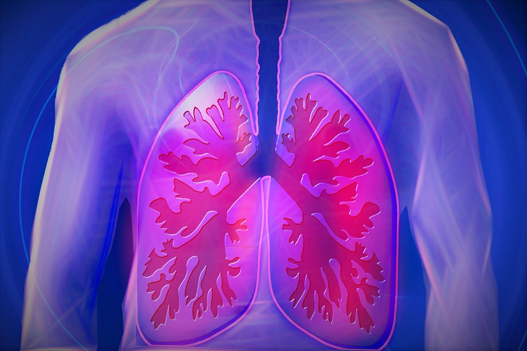
image credit- shutterstock
A team of researchers, led by Assistant Professor Minh Le from the Institute for Digital Medicine (WisDM) and Department of Pharmacology at the Yong Loo Lin School of Medicine, National University of Singapore (NUS Medicine), has successfully demonstrated that nano-sized particles released by cells, such as red blood cells, could be repurposed to function as drug delivery platforms to carry antisense oligonucleotide (ASO) molecules targeting cancer cells in the lungs, thereby suppressing cancer progression.
This study was conducted in collaboration with the Cancer Science Institute of Singapore (CSI Singapore) at NUS, Agency for Science, Technology and Research (A*STAR), National Cancer Centre Singapore (NCCS), and Duke-NUS Medical School.
Lung cancer, specifically Non-Small Cell Lung Cancer (NSCLC)–the most common subtype of cancer contracted by patients who do not smoke, is a leading cause of cancer mortality and the second most diagnosed cancer globally. The rapid and inevitable emergence of drug resistance mechanisms caused by mutations in cancer severely outpaces the development of small molecule drugs. This phenomenon adds urgency for a new, customisable, safe, and effective anti-cancer therapeutic that could be designed, screened, and validated in a short amount of time.
In this study, the researchers utilised extracellular vesicles (EVs) derived from human red blood cells as a natural carrier to deliver the anti-cancer ASOs to the tumour site. To direct the ASO-loaded EV towards the tumour site, EGFR-targeting moieties were engineered onto the surface of the EVs.
Associate Professor Tam Wai Leong, Deputy Executive Director of A*STAR Genome Institute of Singapore (A*STAR GIS), and co-corresponding author of the study, said, “The innovative use of extracellular vesicles as a delivery vehicle for nucleic acid therapeutics added a potentially powerful treatment modality for treating malignancies. The ability to precisely eliminate mutant EGFR cancer cells while sparing normal tissues will enable customised treatment for individual patients. This is a significant step towards addressing cancer drug resistance and advancing the application of personalised cancer medicine.”
Professor Goh Boon Cher, Deputy Director of the NUS CSI, Professor of Medicine at NUS Medicine and one of the authors of the study added, “This work is instrumental in breaking new ground for precise delivery of therapeutic RNA to tumour cells to destroy them by targeting their vulnerabilities. It is a proof of concept that can be broadly applied in other areas of cancer treatment.”




